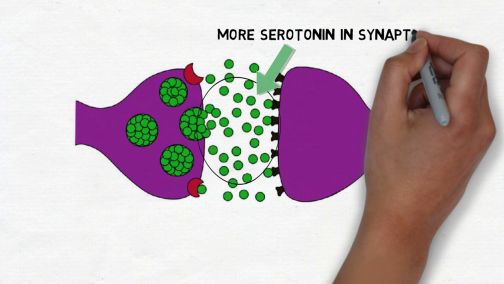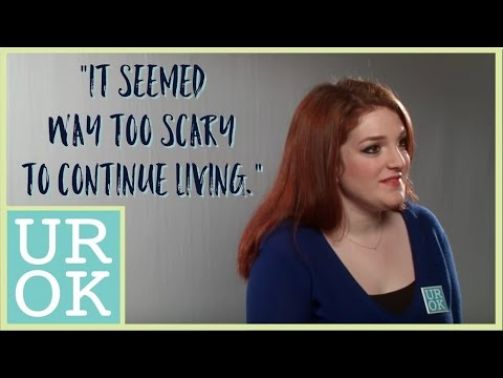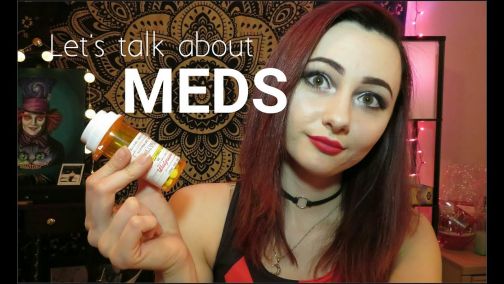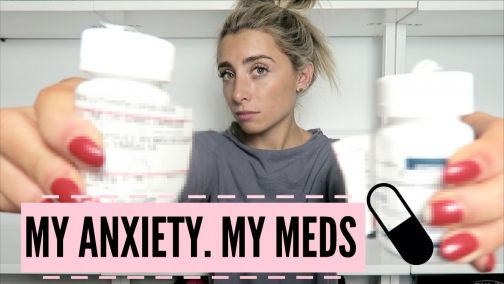Entender los medicamentos para el TOC
¿Cuándo debería considerar los fármacos recetados?
Para algunas personas la concienciación y la meditación no son suficientes. Los medicamentos pueden ser usados en combinación para conseguir mejores resultados. Según la International OCD Foundation, cerca de BLANK% de pacientes de TOC toman medicamentos. De esos BLANK%, solo la mitad deja de usarlos debido a los efectos colaterales negativos o por otros motivos. Aquellos que continúan el tratamiento ven una reducción de promedio del 40-60% de los síntomas de TOC. La medicación no es para todos. Es crucial que consultes con un médico antes de considerar opciones medicinales.
Se pueden ofrecer los medicamentos en diferentes momentos de la trayectoria de una persona. Algunos prueban los medicamentos antes de empezar la terapia. Otros prueban los medicamentos después o durante la terapia. Muchos médicos recomiendan probar las terapias ACT o ERP y actividades de concienciación antes de empezar a tomar medicamentos para ver si los síntomas pueden ser gestionar sin fármacos. Dicho esto, cada trayecto es distinto y algunos pacientes prefieren estabilizarse con medicamentos antes de comenzar el cuidado professional.

OCD Medication & Therapy
La familia principal de medicinas utilizadas para tratar TOC son conocidas como inhibidores selectivos de la recaptación de serotonina o ISRS. Los ISRS mejoran tu actividad natural de serotonina y son usadas para tratar graves desordenes depresivos y condiciones de ansiedad.
Algunos ejemplos incluyen Lexapro, Prozac, Paxil y Zoloft. No todos los ISRS serán eficaces en tratar TOC y la medicina que funciona para una persona tal vez no funcione para otra. Es por eso que su uso debe ser controlado por un profesional.
Los efectos colaterales son comunes con los ISRS. Por esto es importante que los pacientes sean francos con sus doctores respecto a cómo se sienten. Si un ISRS está teniendo un gran efecto en tu habilidad de trabajar, socializar y llevar a cabo tareas cotidianas, puede que sea hora de dejar el tratamiento. Si estás embarazada o amamantando, consulta con tu médico sobre los riesgos potenciales del medicamento. Muchos ISRS son seguros de tomar durante el embarazo, pero existe la posibilidad de que se produzcan efectos secundarios. Aprende más aquí.
De la comunidad
When do I take SSRIs?
SSRIs are a daily medication. They should not be taken solely at moments of intense stress like beta blockers (drugs that control adrenaline). They should be worked into your everyday routine.
The time of day you take your meds is up to you and your doctor. It is possible to optimize their effects by working with your schedule. However, this is an individual experience and no one answer applies to all patients.
It’s important to continue your SSRIs even when you start feeling better. They aren’t a quick fix, they are an ongoing management tool for anxiety. If you stop treatment after seeing results, negative symptoms will likely return. Doctors often recommend that patients stay on an SSRI for at least one year to experience full effects.
If I’m interested in trying them, where should I go?
Any licensed medical doctor can prescribe SSRIs. However, it is recommended that people work with psychiatrists rather than general practitioners when it comes to mental health related medications. Psychiatrists will have a better understanding of your condition and any possible comorbidities. In the case of OCD, you should try and find a psychiatrist who specializes in severe anxiety disorders and has past experience treating other OCD sufferers.
Once you set up an appointment, you’ll be asked to describe what you’re going through — your symptoms, their duration, the impact they have on your day-to-day, other treatments you’ve tried, etc. It’s important that you are candid and open with your doctor when having these conversations. From there, you’ll work together to come up with a treatment plan. In many cases, this plan includes a combination of medication and therapy.
If you do not have insurance, you can ask your doctor to prescribe the generic version of a drug. These will be cheaper, and often have the same effects as a brand name version. Many drug companies also have programs that assist people in accessing medication when they cannot afford it. These drugs may be free or sold at a reduced cost. You can find out more at the PPA (Partnership for Prescription Assistance) website, or call them at 1-888-477-2669.
I’m afraid. Should I be?
Treatment can be scary, so don’t feel ashamed if you’re intimidated or hesitant. It’s a totally normal response to have! That said, a doctor will work with you in deciding the best course of action based on your specific symptoms. They’ll be there to answer questions, schedule check-ups, and help you understand what’s going on. You’re not in this alone.
It also helps to open up to family, friends and/or partners about your treatment journey. Some people like to find local or online support groups for additional guidance. Leaning into your community can be life changing when it comes to starting medication. It can also help to have someone close to you monitor your behavior changes as you adjust to drugs. It can be hard to understand the impact a medication is having when you’re the one effected. Often times, an outside observer will pick up on changes that you wouldn’t have.
Lastly, remind yourself that recovery isn’t linear and that there is no easy solve to anxiety. You’ll have ups and downs, even on medication. You’ll struggle to make a decision about the right kind of treatment. You may doubt the choices you’ve made. The important thing is that you’re learning and trying. No one gets this right immediately. It’s an ongoing process that requires patience and understanding with yourself.
Apoya nuestro trabajo
Nuestra misión es cambiar la manera en que el mundo percibe la salud mental.





